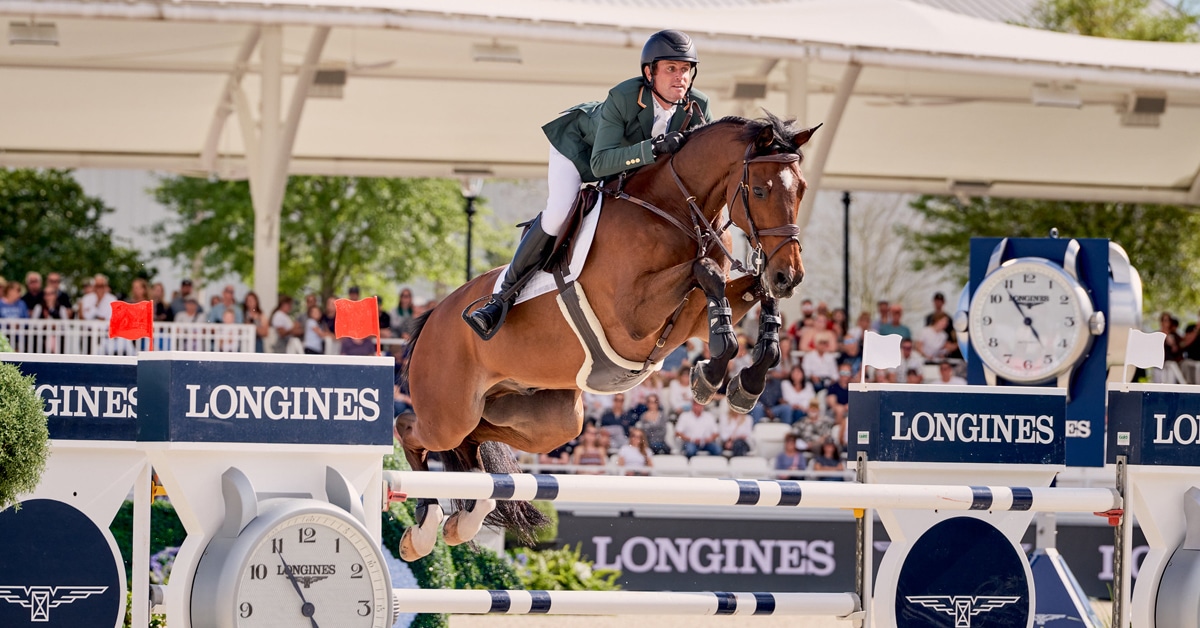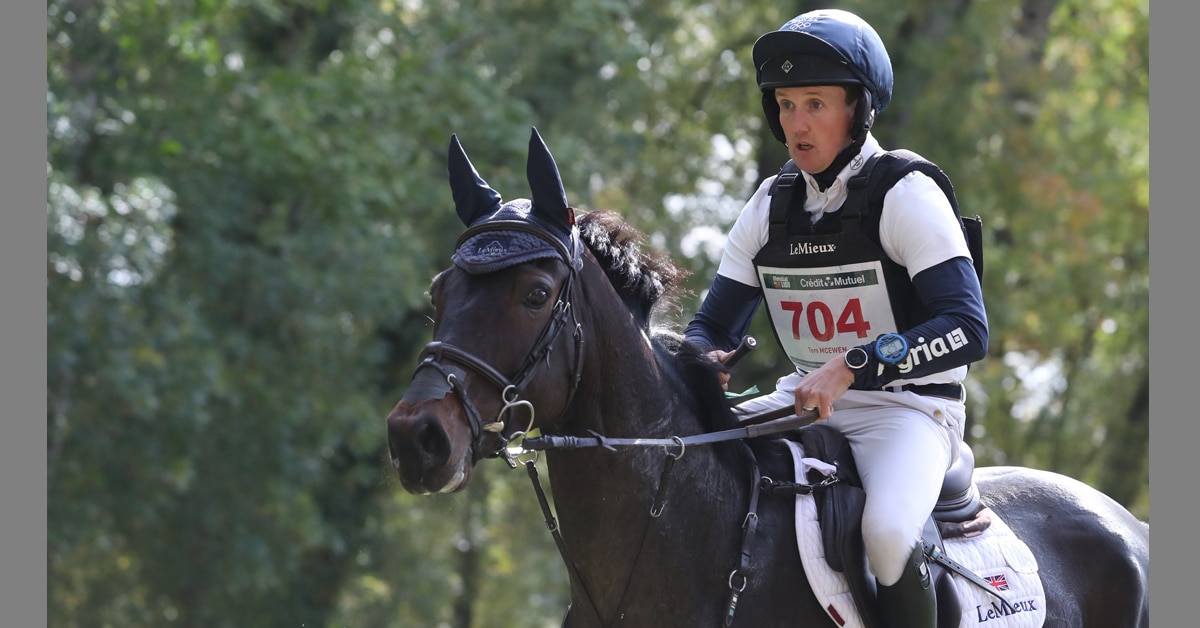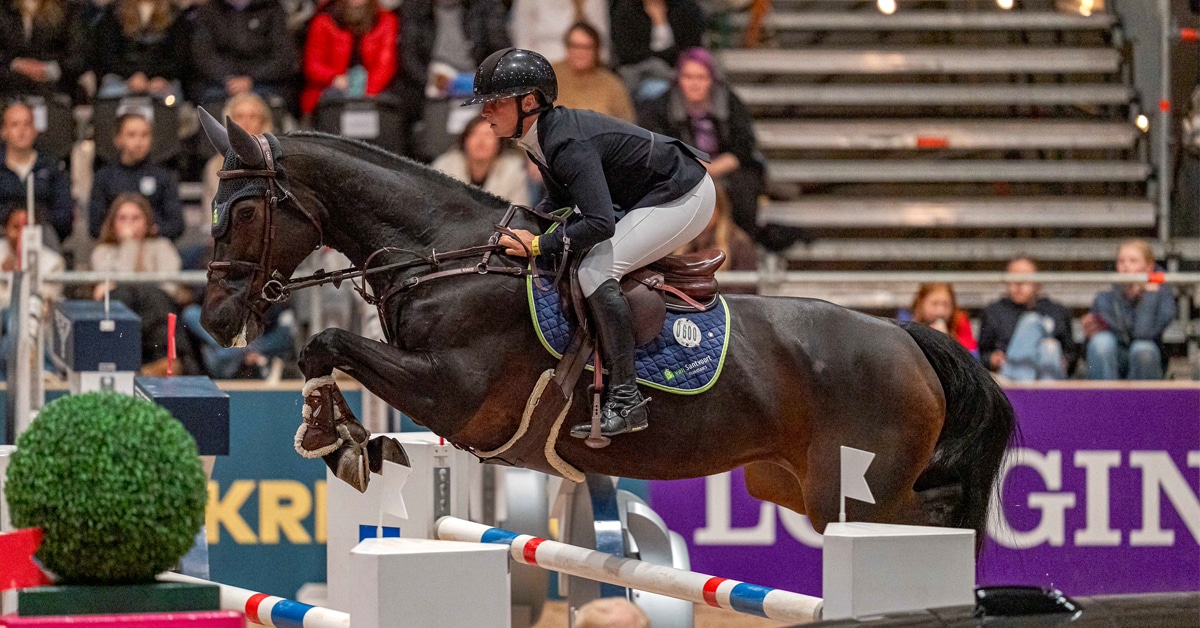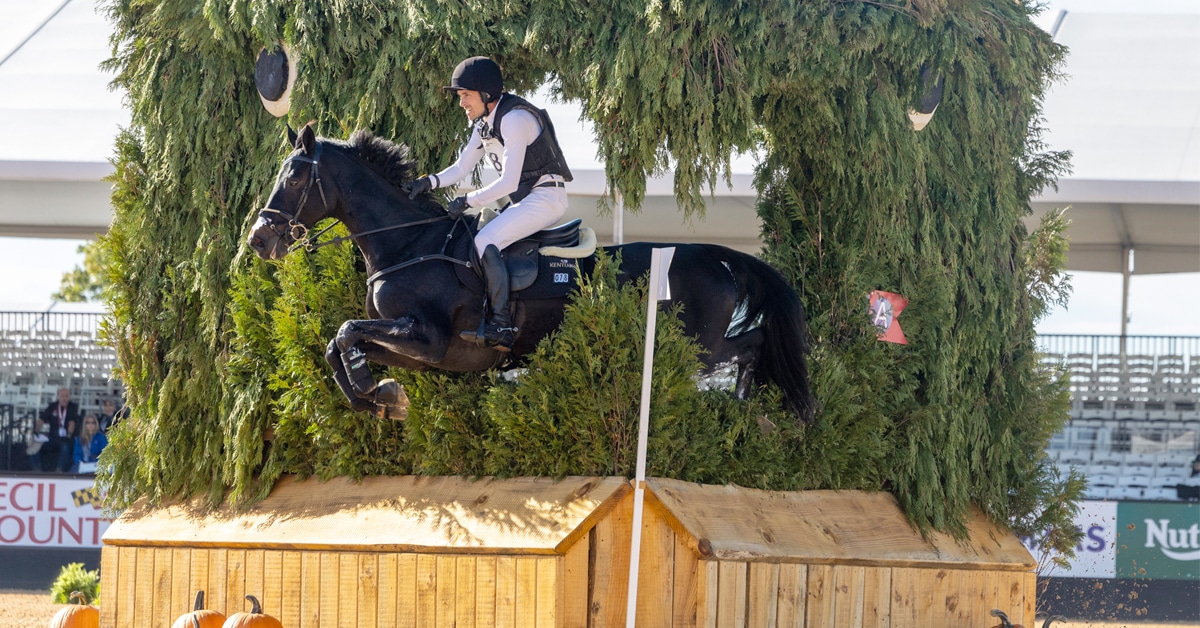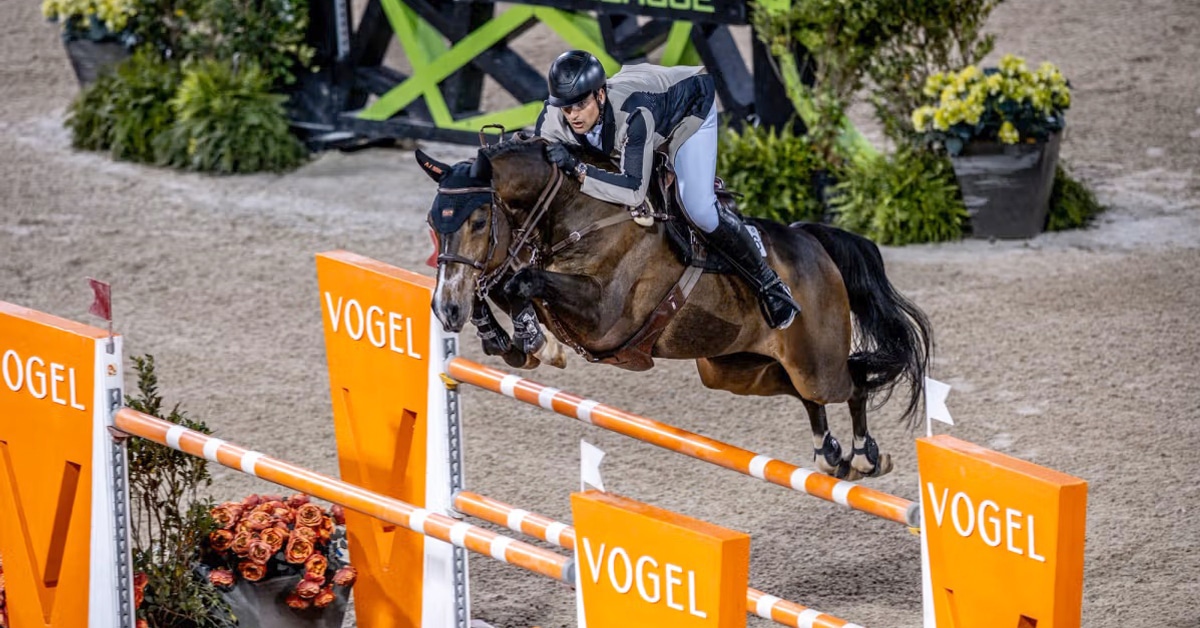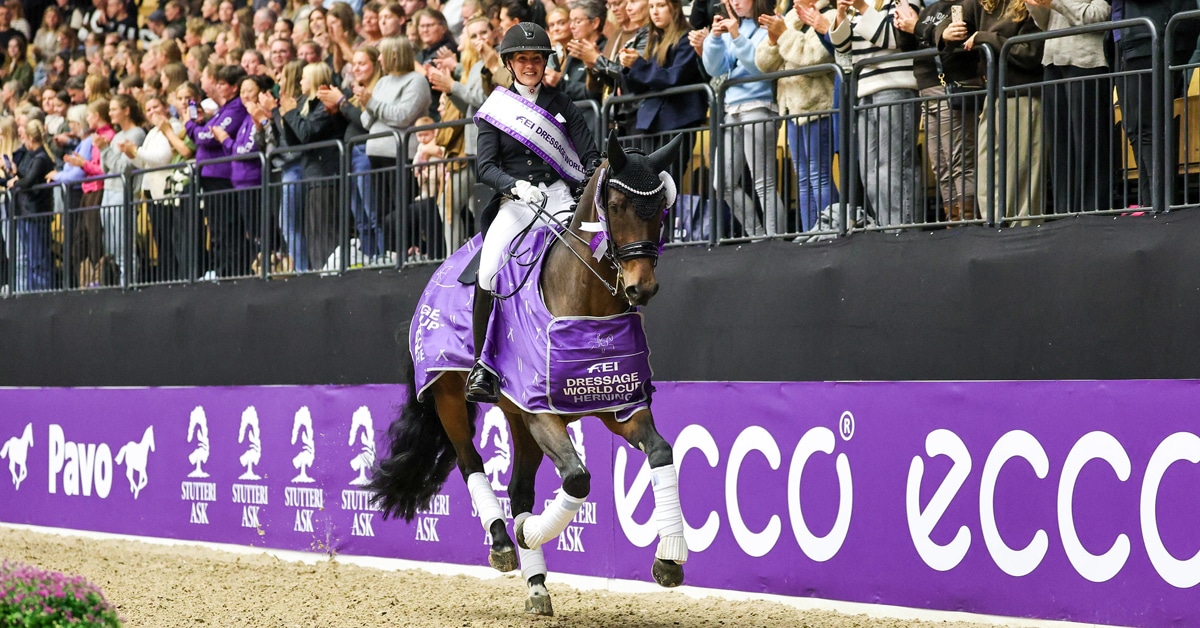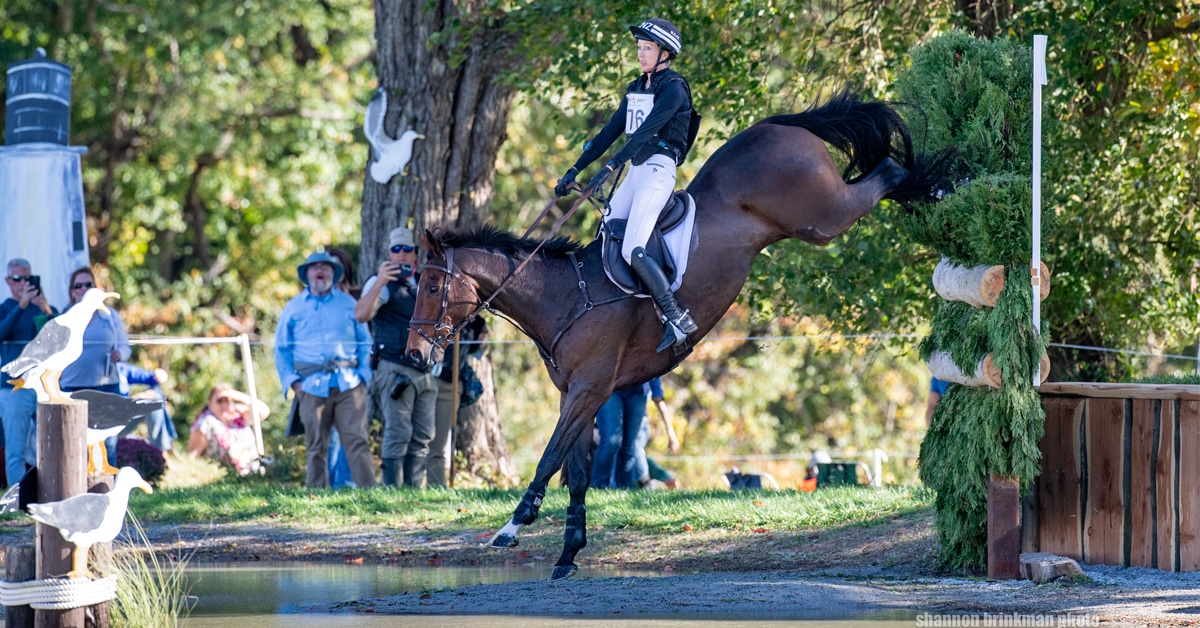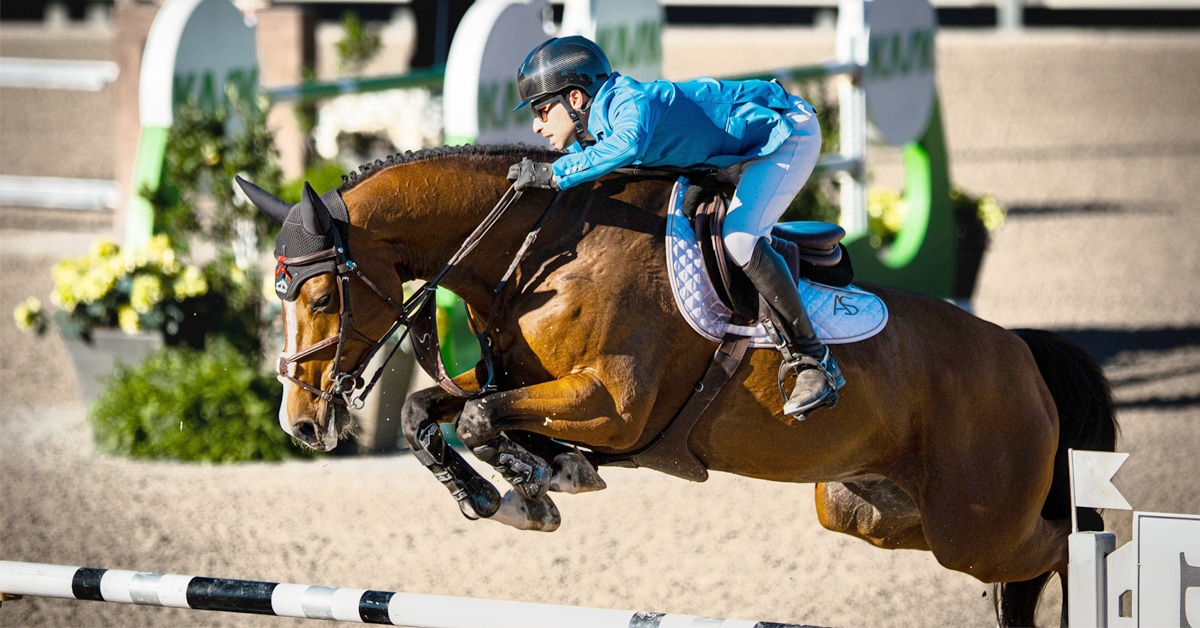An equine herpes virus outbreak has again brought one of the show jumping tours in Spain to a halt, just two years after a major outbreak in the same Valencia region led to an overhaul of FEI biosecurity measures. In early 2021, events were cancelled right across Europe until mid-April to contain the spread, including the dressage and jumping World Cup finals. At least 18 equine fatalities were reported.
This week there are four confirmed cases of EHV-1 on the Mediterranean Equestrian Tour (MET) showgrounds at Oliva Nova, where there was no evidence of onsite viral transmission in 2021, and one in Lier, Belgium. The four horses in Spain were among 10 with a fever, all stabled in the same tented block of 82. The other horses must remain on site after yesterday’s cancellation. There are no reports of neurological symptoms to date.
This leg of the MET was scheduled to run till February 26. All 989 horses participating since February 7 have been blocked from making entries elsewhere, as have 25 in contact with the horse now in Belgium.
A FEI spokesman said: “The FEI is working closely with the Spanish National Federation, the Spanish Veterinary Authority and the Organising Committee following four confirmed cases of EHV-1.
“All the precautionary measures to minimise the risk of transmission have been swiftly applied, and all the horses attending Oliva from 7 February to 22 February – close to 1,000 horses – have been blocked in the FEI database. This includes any horses that may have already left Oliva to compete at other FEI events.
“For the 82 horses stabled in the same block as the four horses that tested positive, they are required to stay onsite for at least seven days with measures and testing protocols to be fulfilled prior to leaving the venue, while for the remaining horses, they can leave the venue as soon they have completed a pre-departure veterinary check.
“All the horses from Lier (BEL) and Oliva (ESP) that have been blocked in the FEI database are prevented from attending any FEI events until they have fulfilled certain health requirements which are imposed in order to minimize any potential transmission of the virus, both to their own horses and the wider horse population.
“The mandatory biosecurity measures include isolation for a minimum of 21 days, taking twice daily rectal temperatures and conducting laboratory testing for EHV-1. Release from isolation can only take place on the advice of a veterinarian and in order to be ‘un-blocked’ and have access to FEI Events, the horses will need to comply with all the return to competition protocols and have the restriction lifted by the FEI Veterinary Department.
“We are grateful for the community’s vigilance in all matters of biosecurity and once again reiterate the importance of the Horse Health Requirements and all the preventative measures the community can actively apply in order to minimise the risk of disease transmission.”
The 2021 review noted that temporary stabling of large numbers of horses is the same tented construction was a major risk factor in spread of disease. However, tents remain in use as the permanent stabling in some tour venues. The permanent stables are generally only sufficient to accommodate one-third of the horses whose European riders make the journey south each winter.
More News
